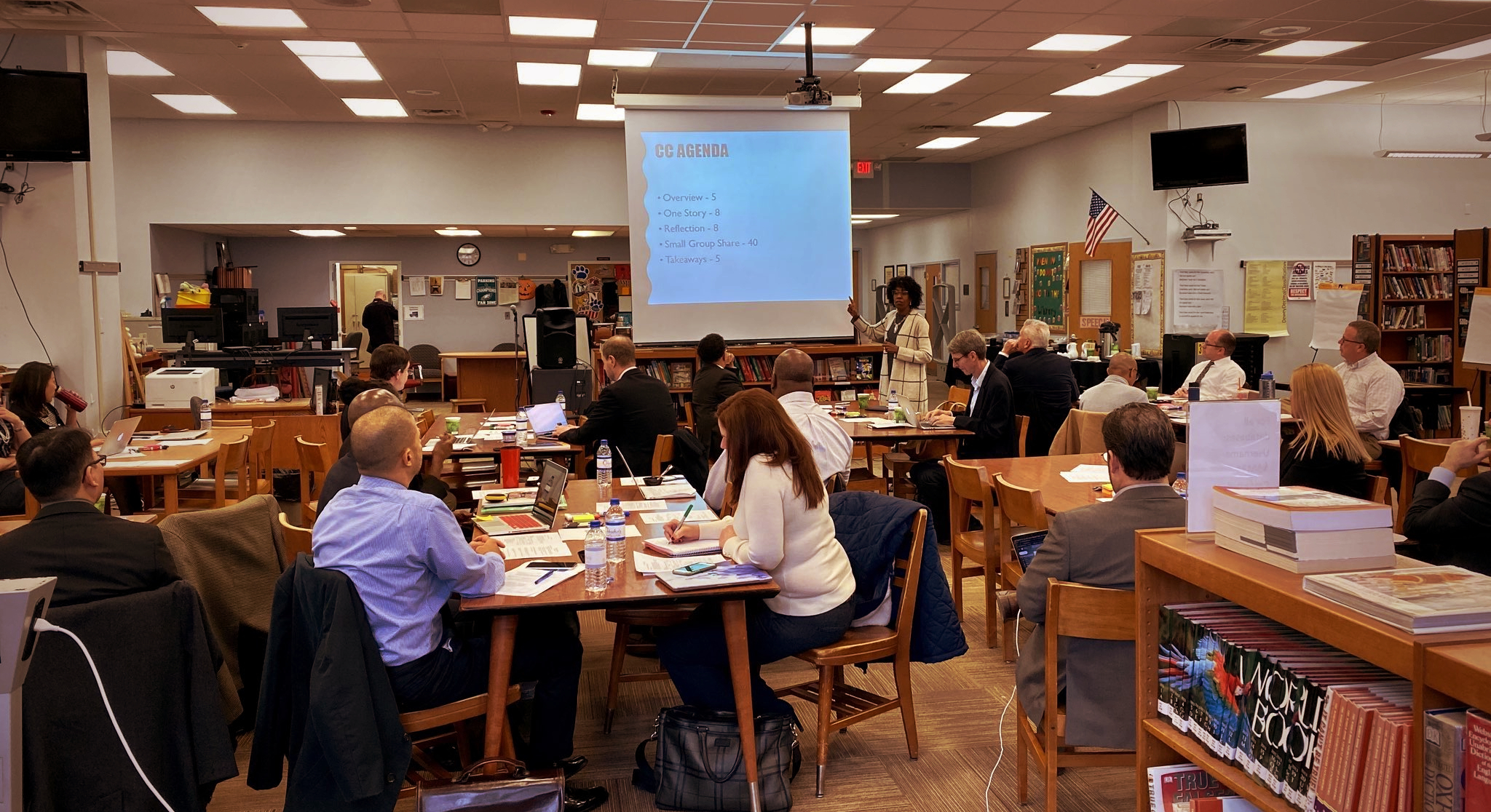
Overview of Core NJNS Practices:
- NJNS superintendents identify one or more equity goals grounded in an equity focused a theory of action, and identifies high-leverage strategies that are implemented, monitored and assessed to determine outcomes.
Members regularly share progress and challenges concerning their equity goal work with NJNS colleagues and receive real-time non-judgmental feedback. Relational trust is a key to NJNS’s ability to be a community of practices that is safe for honest, transparent dialogue.
- NJNS members engage in courageous conversations about race and develop the skills needed to support such conversations in their respective districts.
Members host and participate in Equity Visits ( See Equity Visit Protocol)
- NJNS sessions will periodically feature external speaker to share current thoughts on advancing equity, instructional improvement, or other topics of high relevance to the Network.
- Although NJNS, is a superintendents’ network, a priority is placed on involving the superintendent’s leadership team to support the communication and alignment across system leadership.
How is NJNS Organized ?
The GSCS, a non-profit organization , with members from 17 New Jersey school districts is the fiduciary agent for NJNS.
NJNS is largely funded by membership fees and when available, small support grants for foundations or corporative philanthropy.
NJNS is self-governed and members annually elected a president, vice-president, treasurer, and secretary. The elected members serve one-year terms. The elected NJNS officers serve as a Governance Team, that has oversight of programmatic, financial, programmatic, and consults work with the NJNS Design Team on the focus and work of the Network.
The NJNS Design Team meets regularly to develop, in collaboration with Network members, a program design for each academic year and for each Network session during the year. The design team plays a central role in Network facilitation. While any partnership involves give and take, it should be understood that key programmatic decisions would continue to reside with the design team and NJNS members. The Design Team frequently consults with NJNS officers and members to assure alignment with the goals, interests and needs of participating NJNS agendas.
NJNS is a 13-year-old, voluntary community of practice. A community of practice (CoP) is a group of people who share a common concern, a set of problems, or an interest in a topic and who come together to fulfill both individual and group goals.
Communities of practice often focus on sharing best practices and creating new knowledge to advance a domain of professional practice. Interaction on an ongoing basis is an important part of this.
Many communities of practice rely on face-to-face meetings as well as web-based collaborative environments to communicate, connect and conduct community activities
As a community of practice:
NJNS 2021-22 Program Commitments
- NJNS will focus on activities to advance systemic approaches to advance educational equity in NJNS member district.
- All NJNS member districts will develop, implement and assess district specific Equity Goal using the NJNS framework
- Several in-person or virtual approaches to Equity Visits will be conducted. COVID considerations and district equity context will result inform alternative approaches.
- NJNS superintendents are encouraged to form their version of an Equity Leadership team to support, implement and monitor district Equity Goals. Members of the district leadership are urged to regularly attend NJNS sessions during the 2021-22 school year.
- Culturally Responsive Education tenets and practices will be integrated into NJNS sessions with emphasis on integrating CRE strategies into 2021-22 district Equity Goals.
Courageous Conversations will continue as an important component of NJNS sessions.
- Several external speakers on topics related to educational equity, culturally responsive and/or equity leadership will present their work at virtual sessions throughout the school year.